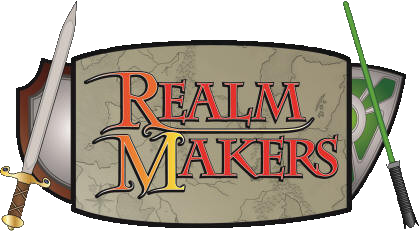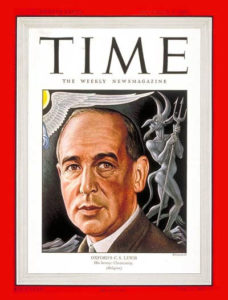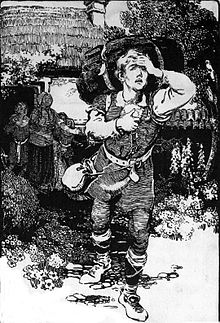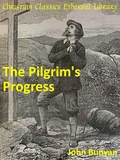Sharing My Reading Joy
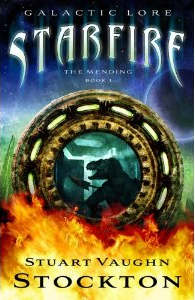 As most of the regulars here at Spec Faith know, we columnists care for writers but also for readers. We’d like to bring the two groups together so that writers can interact with those reading their books and readers can find new writers whose books they can sample.
As most of the regulars here at Spec Faith know, we columnists care for writers but also for readers. We’d like to bring the two groups together so that writers can interact with those reading their books and readers can find new writers whose books they can sample.
That’s one of the rationales for having Spec Faith host the Clive Staples Award. If you haven’t checked lately, we have thirty-two nominations. Yes, you read that correctly! Thirty-two!
Because of the high number of nominations, we’ve decided to add a round of voting to narrow the field. For both rounds, however, we will maintain the eligibility requirement for voters: only people who have read two of the nominations may vote.
We’re also happy to disclose that the winner of the Clive Staples Award will be announced at the Realm Makers Conference August 2.
That being said, I find that many readers are still unfamiliar with Christian speculative fiction–even Christian writers, even Christians writing speculative fiction. Consequently, I thought I’d share with you some of my favorites–not including those currently nominated for the CSA (unless their part of a series which I name–that can’t be helped) since I don’t want to unduly influence the vote, one way or the other. Because of that ancillary provision and the fact that I’m relying on my memory, this list is far from complete.
As much as I’d like to rank the books, too, because that’s always kind of fun, I’m not going to do that. So much of ranking depends on taste. Consequently, because I favor fantasy, my list will reflect my preference, but science fiction stories ought not automatically be viewed as of lesser quality because they’re not on the list.
So, without any further preamble–my list:
 Stephen Lawhead’s Bright Empires series. Not time travel, but close. Not science fiction, but sort of. These books are unusual, the characters grow on you the more you read, and the conflicts deepen. These may be the best of Lawhead Sr. (Adult speculative–sort of defies other categorization).
Stephen Lawhead’s Bright Empires series. Not time travel, but close. Not science fiction, but sort of. These books are unusual, the characters grow on you the more you read, and the conflicts deepen. These may be the best of Lawhead Sr. (Adult speculative–sort of defies other categorization).
Andrew Peterson’s Wingfeather Saga. Fantasy of high quality. Not stories involving the usual fantasy creatures, these books are highly inventive and the characters come alive. The first book in particular is filled with middle grade boy humor, but the story grows deeper and darker in the next two books. We’re eagerly waiting for the final installment. (Middle grade/young adult fantasy).
Tom Pawlik’s Vanish which won a Christy Award. This is my hat tip to the many fine supernatural suspense writers. While this is not my genre, I found Pawlik’s debut novel to be a wonderful read. It has elements of mystery from beginning to end. The horror is held somewhat at bay, so readers shouldn’t expect to be scared out of their socks. There’s more intrigue than fright . . . until the end. (Adult supernatural suspense/horror).
Shannon Dittemore’s Angel Eyes series. FYI, there’s a contest starting today for a copy of the final book in the series, Dark Halo. Any Dittemore fans will want to check it out. I’ll count myself in that crowd. Not supernatural suspense in the same vein as Vanish, Shannon’s books are nonetheless in that genre. What mark her stories is a faithfulness to the Biblical record in the midst of imaginative speculation. Plus her characters are captivating. (Young adult supernatural suspense).
Sharon Hinck’s The Song of Lyric series. Wonderful fantasy, again without the typical creatures from Middle Earth. The three books (and there are more in the works) are really stand-alones, though they bleed into one another. The world is an interesting blend of the primitive with the technological. The strength of the books is in the relationship of the characters, the political intrigue, and the unique expression of Christian truth. (Adult fantasy).
Jill Williamson’s Captives, though I’m pretty sure I’ll put the entire Safe Lands series on my list once they’re written. The characters and the world are so well drawn and both are memorable. The conflict is razor sharp throughout, even when things seem safe in the Safe Lands. The story is filled with meaning for today, but Jill never preaches. (Young adult dystopian fantasy).
Matt Mikalatos’s Night of the Living Dead Christians which follows his My Imaginary Jesus story starring the fictitious Matt Mikalatos. The book is semi-allegorical, somewhat spoof, not at all horror, though all the very in-vogue horror creatures make an appearance. You’ll laugh until you cry because of the conviction the book brings. (Adult contemporary fantasy spoof-ish allegory).
Karen Hancock’s Guardian-King tetralogy is still among my favorites. The world-building is excellent, the characters engaging, the conflict intriguing and ever-changing appropriately. About the time you think all is well, you find out there’s a greater threat than you or Abramm expected. My favorite is perhaps book two of the series. (Adult fantasy).
Anne Elisabeth Stengl’s Tales of Goldstone Woods series is putting her in an elite class of writers. She’s won Christy Awards for the first three and is nominated again this year. These are fairytale fantasies, somewhat dependent upon one another. Her writing is beautiful, the truth of God’s grace and redemption comes through in each story, not through an author lecture, but through the events of the plot. (Young adult fairytale fantasy).
Donita Paul’s Dragons of the Watch is, in my estimation, her finest book. This cozy fantasy is filled with surprise. The characters are engaging, the world intriguing, the conflict sufficiently threatening. This one had me turning the pages to find out the mystery and the romance, but it was still memorable–not the easy come, easy go of so many page turners. (All ages fantasy).
I was going to stop at ten, but I really can’t leave off Stuart Stockton’s Starfire: The Mending. This is simply one of the finest, most inventive stories I’ve read. The characters, as unique as they are, are incredibly believable. The plot is filled with intrigue and conflict. And the world-building is phenomenal! My only hope is that there will someday soon be a book 2 in the Galactic Lore series. (Adult science fiction)
So there you have my recommendations, limited as they are. Whether you choose books from this list or from the list of CSA nominations so that you will be eligible to vote, I hope you’ll give some of these fine books by Christian authors a try.
Now it’s your turn. What are your favorites?
– – – – –
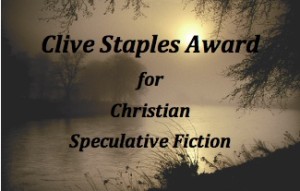 Below is the list, to date, of the CSA nominations (in alphabetical order by the author’s last name). If for some reason I’ve missed a nomination, please let me know. Also, the nominations will remain open for a little while longer, so if you don’t see your favorite book published in 2012 on this list (see list of eligibility standards), feel free to add it in the comments section of the Nominations post.
Below is the list, to date, of the CSA nominations (in alphabetical order by the author’s last name). If for some reason I’ve missed a nomination, please let me know. Also, the nominations will remain open for a little while longer, so if you don’t see your favorite book published in 2012 on this list (see list of eligibility standards), feel free to add it in the comments section of the Nominations post.
Words in the Wind by Yvonne Anderson Risen Books
Daughter of Light by Morgan L. Busse Marcher Lord Press
Devilâs Hit List: Book Three of the UNDERGROUND by Frank Creed Splashdown Books
Liberator Dragonâs (Starlight series) by Bryan Davis Zondervan
A Throne of Bones by Vox Day Hinterlands / Marcher Lord Press
Angel Eyes by Shannon Dittemore Thomas Nelson
The Telling by Mike Duran Realms Fiction
Risk by Brock Eastman P&R Publishing/Focus on the Family
Live and Let Fly by Karina Fabian Muse It Up Publishing
I Am Ocilla by Diane Graham Splashdown Books
Seeking Unseen by Kat Heckenbach Splashdown Books
Remnant in the Stars by Cindy Koepp Under The Moon
The Unraveling of Wentwater (The Gates of Heaven Series) by C.S. Lakin Living Ink Books
Prophet by R. J. Larson Bethany House
Judge by R. J. Larson Bethany House
Spirit Fighter by Jerel Law Thomas Nelson
Fire Prophet by Jerel Law Thomas Nelson
The Spirit Well by Stephen Lawhead Thomas Nelson
The Wrong Enemy by Jane Lebak MuseItUp Publishing
Alienation (A C.H.A.O.S. novel) by Jon S. Lewis Thomas Nelson
Curse Bearer by Rebecca P Minor Written World Communications
Rift Jump by Greg Mitchell Splashdown Darkwater
Bid the Gods Arise by Robert Mullin Crimson Moon Press
Prophetess (Winter Book 2) Keven Newsome Splashdown Darkwater
Failstate by John W. Otte Marcher Lord Press
Soul’s Gate by James Rubart Thomas Nelson
Starflower by Anne Elizabeth Stengl Bethany House
Moonblood by Anne Elisabeth Stengl Bethany House
Star Of Justice by Robynn Tolbert Splashdown Books
Daystar by Kathy Tyers Marcher Lord Press
The New Recruit by Jill Williamson Marcher Lord Press
Replication: The Jason Experiment by Jill Williamson Zonderkidz

































